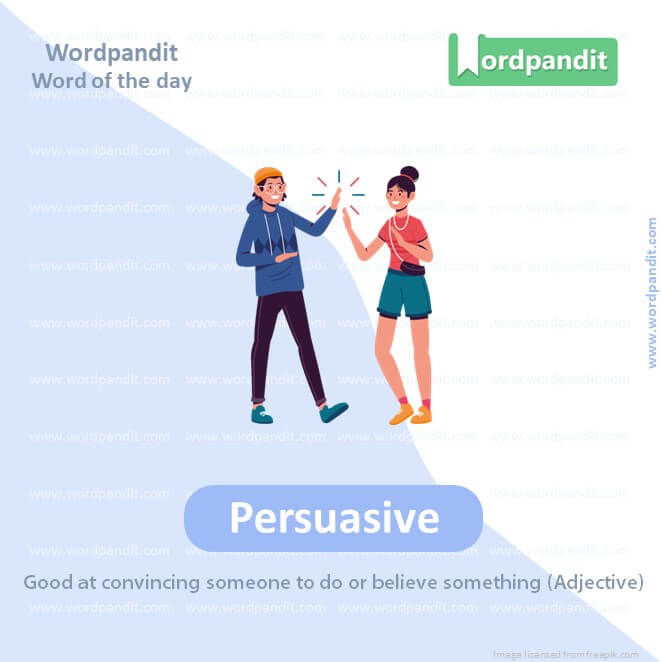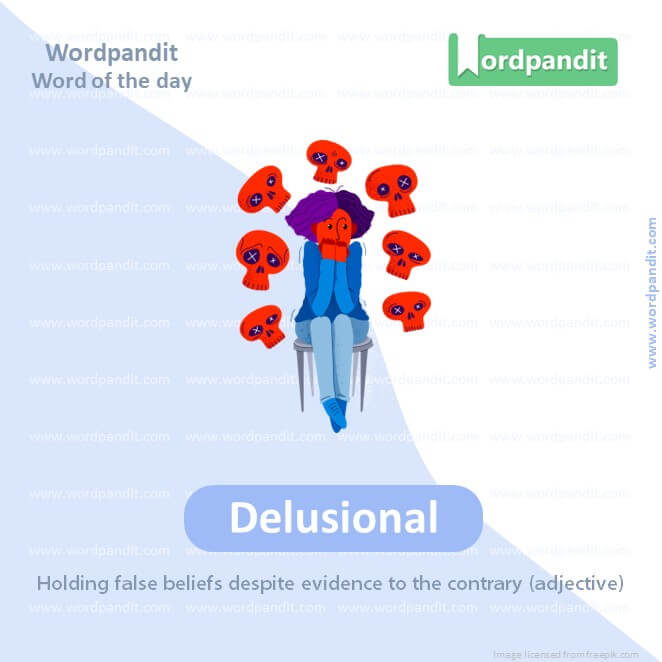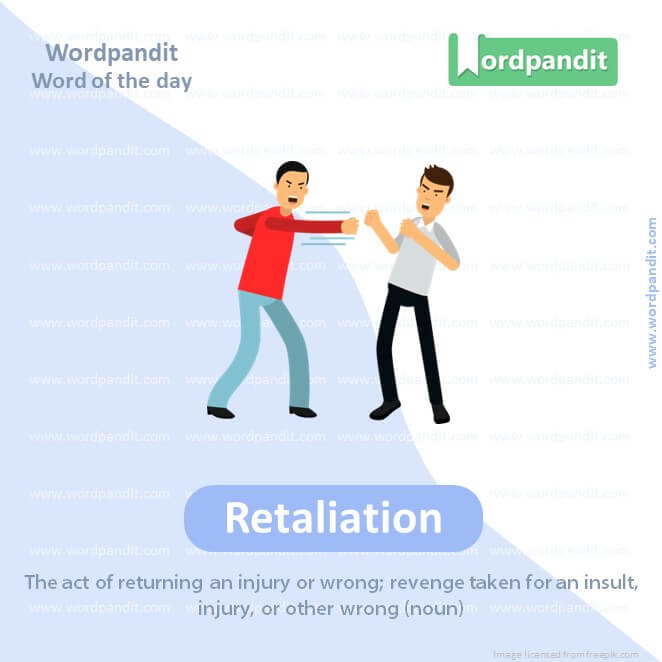Daily Vocabulary Words: Enhance Your Lexicon with Leading Newspapers & Publications
Welcome to the Daily Vocabulary section at Wordpandit!
Our mission is straightforward: to bring you essential vocabulary words featured in top newspapers and publications worldwide. By focusing on words you’ll encounter in renowned sources, we aim to help you enhance your vocabulary effectively and practically.
Our selection includes words from:
– The New York Times
– The Washington Post
– Scientific American
– BBC
– The Guardian
– Psychology Today
– Wall Street Journal
– The Economist
– The Hindu
– The Times of India
– The Economic Times
– Hindustan Times
– Live Mint
– The Indian Express
– And many more.
We are committed to your vocabulary development. Simply visit this section regularly and explore the daily posts. This is your go-to repository for commonly used words, providing significant practical benefits by familiarizing you with vocabulary from the leading publications listed above.
Make it a habit to visit our website daily and expand your lexicon with words from top newspapers and publications.

WORD-1: PERSUASIVE
CONTEXT: She makes the persuasive case that even if he does not formally withdraw from the alliance, Trump can render it defunct simply by shaking confidence in its central commitment: that each member come to the defence of any other if attacked.
SOURCE: Guardian
EXPLANATORY PARAGRAPH: Imagine you’re trying to get your friend to play your favorite game, and you tell them all the fun reasons why they should join you. If you’re really good at explaining and making them want to play, you are being “persuasive.” It means you can convince others to agree with you or do something!
MEANING: Good at convincing someone to do or believe something (Adjective)
PRONUNCIATION: pur-SWAY-siv
SYNONYMS: Convincing, compelling, influential, powerful, forceful, enticing, eloquent
USAGE EXAMPLES:
1. The persuasive speech convinced everyone to vote for the new class president.
2. She used persuasive arguments to get her parents to let her stay up late.
3. His persuasive tone made it hard to say no to his ideas.
4. The commercial was so persuasive that many people bought the product.

WORD-2: DELUSIONAL
CONTEXT: The go-it-alone fantasies of the Brexit era were always delusional.
SOURCE: Guardian
EXPLANATORY PARAGRAPH: Imagine thinking that you’re a superhero with real powers, even when everyone tells you that you’re just pretending. If you strongly believe in something that’s not true, you’re being “delusional.” It’s when someone thinks something that’s not real or possible, but they believe it very much.
MEANING: Holding false beliefs despite evidence to the contrary (adjective)
PRONUNCIATION: dih-LOO-zhuh-nul
SYNONYMS: Unrealistic, irrational, misguided, mistaken, confused, illusory
USAGE EXAMPLES:
1. The delusional man thought he could fly without wings.
2. She was delusional in thinking she would win the race without practicing.
3. His delusional beliefs made it hard for him to understand reality.
4. The doctor explained that his patient was suffering from delusional thoughts.

WORD-3: RETALIATION
CONTEXT: This would require a carefully measured retaliation that simultaneously signifies an escalation in terms of scope and intensity, but falls short of all-out war.
SOURCE: Guardian
EXPLANATORY PARAGRAPH: Imagine if someone takes your toy, and then you decide to take one of their toys to get back at them. That’s called “retaliation.” It’s when you do something to someone because they did something to you first, usually to get even.
MEANING: The act of returning an injury or wrong; revenge taken for an insult, injury, or other wrong (noun)
PRONUNCIATION: ree-tal-ee-AY-shun
SYNONYMS: Revenge, payback, retribution, vengeance, counterattack, reprisal
USAGE EXAMPLES:
1. In retaliation for the prank, he played a trick on his friend the next day.
2. The country launched a missile in retaliation for the attack on its territory.
3. She slapped him in retaliation after he pulled her hair.
4. Retaliation is not always the best way to solve problems.

WORD-4: EMBOLDENED
CONTEXT: The rest of higher education will find it harder. Networked, nationalized, and emboldened, Rufo has nothing standing in his way.
SOURCE: New York Times
EXPLANATORY PARAGRAPH: Imagine you were too shy to ask for a turn on the swing, but then someone tells you that you can do it, and suddenly you feel brave enough to ask. That feeling of being brave and confident is called being “emboldened.” It means you feel stronger and more confident to do something.
MEANING: Made more confident or courageous (adjective)
PRONUNCIATION: em-BOHL-dnd
SYNONYMS: Encouraged, empowered, inspired, strengthened, reassured, motivated
USAGE EXAMPLES:
1. The applause from the crowd emboldened him to continue his speech.
2. After receiving praise, she felt emboldened to share more of her ideas.
3. The success of their first project emboldened the team to take on bigger challenges.
4. Emboldened by his friends, he decided to ask for a promotion at work.

WORD-5: ENCAMPMENT
CONTEXT: The unhoused draw scant attention from the city, unless a headline-grabbing incident involving an encampment comes into view.
SOURCE: Washington Post
EXPLANATORY PARAGRAPH: Imagine a place where people set up tents and live together, like when you go camping. An “encampment” is a group of tents or temporary shelters where people stay for a while, like during a trip or an event.
MEANING: Temporary places where people live, especially in tents or shelters (noun, plural)
PRONUNCIATION: en-KAMP-mnt
SYNONYMS: Campsite, camp, settlement, bivouac, base, outpost
USAGE EXAMPLES:
1. The soldiers set up an encampment near the river.
2. The hikers found a perfect spot for their encampment in the woods.
3. The festival had a large encampment for all the visitors.
4. The refugees built an encampment on the outskirts of the city.
WORD-6: SURGING
CONTEXT: Zero-sum thinking is surging on the left as well.
SOURCE: New York Times
EXPLANATORY PARAGRAPH: Imagine waves in the ocean getting bigger and stronger, rushing towards the shore. When something moves forward quickly and powerfully like that, it’s called “surging.” It means something is growing or increasing suddenly and a lot.
MEANING: Moving forward or increasing suddenly and powerfully (verb).
PRONUNCIATION: SUR-jing
SYNONYMS: Rushing, rising, swelling, increasing, soaring, escalating
USAGE EXAMPLES:
1. The crowd started surging towards the stage as the concert began.
2. The demand for the new toy was surging just before the holidays.
3. The waves were surging against the rocks during the storm.
4. The company’s profits were surging after the successful product launch.
WORD-7: CONCOMITANT
CONTEXT: This disillusion led to a concomitant rise in global populism.
SOURCE: New York Times
EXPLANATORY PARAGRAPH: Imagine if every time you eat ice cream, you get a brain freeze. The brain freeze and ice cream happen together, like a team. “Concomitant” means two things happening at the same time, often because they are connected.
MEANING: Happening at the same time as something else, especially in a related or connected way (adjective).
PRONUNCIATION: kon-KOM-i-tant
SYNONYMS: Accompanying, associated, related, connected, simultaneous, concurrent
USAGE EXAMPLES:
1. The rise in pollution has been concomitant with an increase in respiratory illnesses.
2. The festival brought concomitant traffic jams throughout the city.
3. Concomitant changes in the weather affected the harvest season.
4. Economic growth and its concomitant benefits have improved living standards.
WORD-8: FOREBODING
CONTEXT: Many of us greet 2024 with a sense of foreboding. We need Joe Biden to be as big as this year demands.
SOURCE: New York Times
EXPLANATORY PARAGRAPH: Imagine feeling that something bad is going to happen, like a storm is coming but you don’t know when. That feeling of worry or fear about something bad is called “foreboding.” It’s when you sense that something not good is on its way.
MEANING: A strong feeling that something bad is going to happen (noun).
PRONUNCIATION: for-BOH-ding
SYNONYMS: Apprehension, dread, fear, anxiety, unease, premonition
USAGE EXAMPLES:
1. The dark clouds gave him a sense of foreboding about the coming storm.
2. She felt a foreboding as she walked down the deserted street at night.
3. There was a sense of foreboding in the air before the big test.
4. The movie’s eerie music filled the audience with a sense of foreboding.
WORD-9: ANTAGONISM
CONTEXT: In this kind of society, life is not about conquest and domination but regulated competition and voluntary exchange. Not about antagonism but interdependence.
SOURCE: New York Times
EXPLANATORY PARAGRAPH: Imagine two kids in a playground arguing and pushing each other because they don’t agree on something. That kind of fighting or not getting along is called “antagonism.” It means people are acting like enemies or are strongly against each other.
MEANING: A strong feeling of dislike or hostility between people (noun).
PRONUNCIATION: an-TAG-uh-niz-um
SYNONYMS: Hostility, opposition, conflict, animosity, rivalry, discord
USAGE EXAMPLES:
1. The antagonism between the two teams was obvious during the game.
2. His words were full of antagonism towards the idea of change.
3. The siblings’ constant antagonism frustrated their parents.
4. The antagonism between the neighbors had been brewing for years.
WORD-10: PLUMMETING
CONTEXT: The American economy is surging, with fast growth, plummeting inflation, and real wage increases.
SOURCE: New York Times
EXPLANATORY PARAGRAPH: Imagine dropping a toy from a high place and watching it fall very quickly. When something falls really fast like that, we call it “plummeting.” It means going down quickly and suddenly, like a sharp drop.
MEANING: Falling quickly and suddenly from a high place or level (verb).
PRONUNCIATION: PLUM-it-ing
SYNONYMS: Dropping, plunging, descending, nosediving, collapsing, tumbling
USAGE EXAMPLES:
1. The temperature is plummeting as winter approaches.
2. The stock prices were plummeting after the company announced its losses.
3. The plane was plummeting towards the ground before the pilot regained control.
4. Her grades started plummeting after she missed several classes.
Vocabulary In English
Dancing within the vibrant scheme of language learning, a profound understanding of ‘vocabulary in English’ is indispensable. These sets of words, serving as the pillars of communication, lay the foundation for effective and fluent exchange of ideas. Yet the question begs, how should one go about mastering ‘vocabulary in English’?
Embracing ‘vocabulary in English’ demands a well-rounded understanding, far more than mere surface memorization. It is of immense benefit to explore a variety of reading materials, such as books, newspapers, magazines, and online content. This broad exposure yields a practical understanding of how and when words are used, thereby enriching your command over ‘vocabulary in English’.
To aid the learning of ‘vocabulary in English’, memory-enhancement techniques come to the rescue. Regularly using flashcards, or applications that reinforce the principles of spaced repetition, can drastically improve memory retention. Aiding this, the use of mnemonic devices to associate words with unique stories or images in your mind has shown to greatly assist recall.
Practical application further paves the way for mastering ‘vocabulary in English’. By using the learnt words actively in your daily conversations, you cement their grasp in memory and understand their practical usage.
Rounding off, regular reviews of ‘vocabulary in English’ is the secret ingredient in the recipe for success. Consistent revision sessions solidify the retention of previously learned words and maintain a fresh connection with them.
To conclude, the path to mastering ‘vocabulary in English’ is an insightful journey, made enjoyable with diverse resources, effective memory techniques, practical usage, and regular review sessions. As you immerse into this linguistic voyage, every word you learn brews a unique tale, enhancing the narrative of your language proficiency and guiding you towards becoming a skilled communicator.











